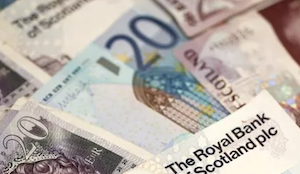Scotland’s onshore GDP grew by 0.3% in July 2024, according to statistics announced by the Chief Statistician.
The wider UK economy stalled recently at 0.0%.
The Scottish figure does not include the output of offshore oil and gas extraction.
“In the three months to July, GDP is estimated to have grown by 0.3% compared to the previous three month period,” said the Scottish Government.
“This indicates a slight decrease in growth relative to the increase of 0.6% in 2024 Quarter 2 (April to June).
“The two industries which made the biggest contribution to overall GDP growth in July were Manufacturing and Information and Communications Services, both of which contributed 0.1 percentage points of growth to headline GDP.”
Deputy First Minister Kate Forbes, also the Economy Secretary, said: “These figures show that Scotland’s economy is recovering steadily, having grown over the last two quarters …
“Our Programme for Government and Green Industrial Strategy set out measures to support start-ups, reduce barriers to investment and work in partnership with businesses.”
Kevin Brown, savings specialist at Scottish Friendly, said: “Scotland’s economy outpaced the wider UK economy in July, growing 0.3% while the wider UK economy stalled at 0.0%. It is notable that one of the chief explanations offered was increased spending thanks to major sporting events, including the Euros and the Olympics.
“For Scottish households this is modestly good news as it means the Scottish economy is weathering the challenging fiscal environment. With interest rates set to fall further toward the end of the year, this could provide a further boost to households and businesses alike.
“The UK Government’s new Budget is looming in October, but some of its potential effects could be diluted thanks to the Scottish Government’s devolved control of some taxation matters. This includes income tax bands and rates, stamp duty and council tax – all of which have been subject to speculation ahead of the Budget on 30 October.
“Despite these positive factors, the message for households in Scotland is still clear: there is a lot of uncertainty ahead and it would be wise to use any disposable income to shore up personal financial resilience. Rainy day funds are the key to this. However, for individuals looking at the longer term, investing could provide greater potential for growth over the longer term.”
